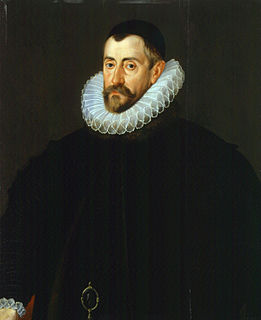A Quote by Mark Twain
When an honest writer discovers an imposition it is his simple duty to strip it bare and hurl it down from its place of honor, no matter who suffers by it; any other course would render him unworthy of the public confidence.
Related Quotes
It is not a man's duty, as a matter of course, to devote himself to the eradication of any, even the most enormous wrong; he may still properly have other concerns to engage him; but it is his duty, at least, to wash his hands of it, and, if he gives it no thought longer, not to give it practically his support. If I devote myself to other pursuits and contemplations, I must first see, at least, that I do not pursue them sitting upon another man's shoulders.
The proscribing any citizen as unworthy the public confidence by laying upon him an incapacity of being called to offices of trust and emolument unless he profess or renounce this or that religious opinion is depriving him injuriously of those privileges and advantages to which, in common with his fellow citizens, he has a natural right.
Honesty is not the same as truth. That is the obstacle of the notion of relative truths. I would like to put my trust in the lunatic. He is the one least concerned of what I think of him, the mark of an honest man. I can always depend on him to be completely honest in what he thinks and feels, about anything, no matter the consequences laid before him, however with no course of rationale, I cannot necessarily take his word for even the well-being of him in his own reality.
A Christian's first duty is to God. It then follows, as a matter of course, that it is his duty to carry his Christian code to the polls and vote them... If Christians should vote their duty to God at the polls, they would carry every election, and do it with ease... it would bring about a moral revolution that would be incalculably beneficent. It would save the country.
In my acquaintance with John Rawls, I found him to be a simple and honest man, who just by chance also happened to be the greatest moral philosopher of the twentieth century. I would like to think that I could emulate at least his modesty - his refusal to exaggerate his perception of himself and his place in the larger scheme of things - even if my work never compares with his in its importance.
It is the duty of all Nations to acknowledge the providence of Almighty God,. to obey his will, to be grateful for his benefits , and humbly to implore his protection and favor... beseech Him to pardon our national and other transgressions; to enable us all, whether in public or private stations, to perform our several and relative duties properly and punctually to render our National Government a blessing to all the people by constantly being a Government of wise, just, and constitutional laws, discreetly and faithfully executed and obeyed
The poet's, the writer's, duty is to write about these things. It is his privilege to help man endure by lifting his heart, by reminding him of the courage and honor and hope and pride and compassion and pity and sacrifice which have been the glory of his past. The poet's voice need not merely be the record of man, it can be one of the props, the pillars to help him endure and prevail.
The citizen who thinks he sees that the commonwealth's political clothes are worn out, and yet holds his peace and does not agitate for a new suit, is disloyal, he is a traitor. That he may be the only one who thinks he sees this decay, does not excuse him: it is his duty to agitate anyway, and it is the duty of others to vote him down if they do not see the matter as he does.




































